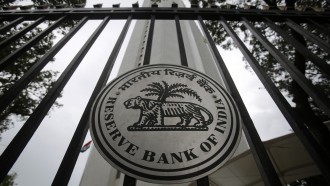
Challenges in international trade and role of International Chamber of Commerce (ICC)
 Rajesh Narain Gupta, Managing Partner, SNG & Partners
Rajesh Narain Gupta, Managing Partner, SNG & PartnersThe role of the International Chamber of Commerce (ICC) has become crucial in today’s world due to the ever increasing trade disputes between countries, traders and banks, and with nations competing in placing protectionist measures in contravention of globally-set rules. In the days to come, ICC, which is regarded as the voice of the business world, is set to play a bigger role, especially in the case of emerging economic powers like India. The ICC, a few years short of its centenary, has been formulating and updating the rules regarding contractual obligations to make those uniform and help parties overcome conflicting national regulations which are detrimental to seamless flow of trade and commerce across the seas. Ever since its inception in 1919, the ICC has been playing the role of a catalyst in driving global fair trade. It promulgated the first set of rules for international trade way back in 1933. The main activities of the chamber include formulating rules, dispute resolution, and policy advocacy so that the rising tide of trade and commerce reaches all the shores without cumbersome processes. The ICC believes that strengthening commercial ties among nations is not only good for business but also good for global living standards and global peace. The most important ICC rules that help drive global trade are the uniform customs and practice (UCP) for documentary credit. This is the most widely used tool and have so far undergone six revisions, and issuing rules on issuance and use of letters of credit (LCs). Currently, UCP 600 is in vogue across countries and these rules are implied unless the LC stipulates the contrary. Other key rules that the chamber has formulated include uniform rules for bank-to-bank reimbursements, international standby practices, and rules applicable for standby letters of credit or SBLCs. SBLCs guarantee performance and strengthen credit worthiness of a customer, while an LC is an assured payment except in case of incorrect documents. In October 1997, the ICC introduced rules for international standard banking practice or ISBP, which examine documents under documentary credits to determine compliance with the documents along with LCs and documentary credit dispute resolution rules. These rules were revised in March 2002. Another key rule that the chamber notified in April 2013 is the uniform rules for bank payment obligations comprising an irrevocable undertaking by the issuing bank to the nominee bank that payment will be made on a specified date after an electronic data matching. This is increasingly gaining momentum today. Key Challenges However, international trade is faced with many challenges from several fronts as domestic interest-supported rules become more complex and insular on one side and more sweeping on the other. Just look at the number of anti-dumping cases that one country slaps on the other! This is despite the efforts of the chamber to ensure that international trade goes on seamlessly by making its rules more dynamic based on the experiences and the difficulties faced by trading parties and banks. One of the major challenges that international trade faces regularly is on the payment front— such as banks rejecting an LC citing a slew of reasons, which includes inaccurate documentation. According to the ICC, a whopping 70-75% LCs are rejected by banks globally. This happens due to the subjectivity with which LC documents are examined, leading to disputes between banks citing incomplete documentation. At times, banks return an LC even without citing valid reasons. Other problems include: court injunction risks/jurisdictional issues; lack of knowledge of the products and rules; financial supply chain failing to keep pace with physical supply chain; issues related to counterparty control sanctions (documents are compliant but for the sanctions violation, e.g. if the vessel is Iranian); and boycott language issues (some countries have anti-boycott language rules which aren’t acceptable to banks in the beneficiary country--Pakistan and many Gulf countries have a boycott language on Israel which is not accepted by most countries) which are acting as big irritants. Major Risks to Issuing Banks So, does it mean that the issuing banks are safe? Not at all, banks face a lot of risks, such as the incorrectly issued LCs with wrong documentation; applicant defaults; and fraud being committed by the applicants and/or beneficiary. The UCP articles which could be relevant to tide over such issues include Articles 6 (a) and 6 (b) and 9 (b) and (c). While 6 (a) specifies that credit available with a nominated bank is also available with the issuing bank, and 6 (b) says credit must state whether it is available by sight payment, deferred payment, acceptance or negotiation, 9 (b and c) advise bank signifies that it has satisfied itself as to the apparent authenticity if the credit or amendment or advice it has received and that the advice accurately reflects the terms and conditions of the credit or amendment received. Key Rules for Mitigation What is to be ensured is that while issuing LCs, the bank has to ensure that it is in line with the terms of credit and is presented properly. The LC application form should adequately describe the transaction, routing, terms and conditions and supported with proper documentation. That apart, the contract/performa terms should also be in accordance with the LC text. Another key point is adherence to the international standard banking practices (ISBP) or the rules determining compliance of the LC documents. The following key UCP articles could of help in this context--Articles 1, 7 (a), 7 (b), 14 (a), 14 (f). While Article 7 deals with terms of credit that are binding on all parties unless expressly modified or excluded, Article 14 (a) deals with nominated banks. Indian Case Studies The Supreme Court and various high courts have repeatedly upheld the validity of LCs, saying those are the lifeline of international trade. Barring situations like fraud of egregious nature and irretrievable damages, courts have consistently upheld the validity and enforceability of LCs. In three successive cases (Federal Bank vs. V.M. Jog Engineering; Impex Trading vs. Annunay Fab and Others; and Federal Bank vs. V.M. Jog Engineering), the Supreme Court has held the validity of LCs/bank guarantees. The court has ruled that in case of any irrevocable LC/bank guarantee, the buyer cannot be granted an injunction against the bank on the ground that there was a breach of contract by the seller. The bank, which has issued the LC or with whom it is opened, has no authority to dishonour it if the party complies with the terms and conditions of LC/bank guarantee. Where the bank is satisfied about the documents presented to it and finds those in conformity with the documents mentioned in LC, it is bound to honour the demand made by the seller to encash LC. The bank can’t refuse payment on citing the buyer’s claim of breach of contract. The bank cannot decide the question of breach and refuse payment to the seller, the court has ruled. In a case involving United Commercial Bank vs. Bank of India and Others, the apex court held that courts should not grant injunctions restraining performance of contractual obligations arising from an LC/bank guarantee between two or more banks. The court further observed that the bank owes a duty to the buyer to ensure that documents tendered by him are complied with or confirming an LC is not concerned with the underlying contract between buyer and the seller. In the State Bank of India Vs. Bank of Ireland and Others case, the court again affirmed the validity of LC, saying if the parties entering into an agreement, intent to oust the natural jurisdiction then they should submit themselves to the exclusive jurisdiction of a court by specifying the court in the documentary credit. The parties should not be subject to undue hardships to get its dispute adjudicated by the court in which the suit is being instituted. The case was interesting as Soni Ispat was planning to buy shredded scrap iron from European Metal Recycling of England. Soni opened and LC with SBI in Indore and Bank of Ireland, which was the negotiating bank, made payment for the same. SBI rejected the documents and filed a suit in a local court in Indore seeking an anti-suit injunction and also to restrain the Bank of Ireland and English firm from initiating any proceedings before any other in respect of the LC. The court rejected the SBI appeal. An LC is a separate contract and is absolute in nature, and the bank is bound to honour its promise to pay the seller. The Supreme Court, while hearing a case involving Garware Wall Ropes vs. Marg Constructions and Federal Bank, has given a verdict that if a seller fails to deliver the goods (which is a condition precedent for obtaining LC and its encashment and may also cause irretrievable harm or injustice to buyer), the seller is restrained from obtaining the amount under LC. If the issuing bank acts in a manner that is patently arbitrary, unethical and unfair in rejecting a claim, a court may exercise writ jurisdiction even in contractual matters. It means that the rights of the parties can be adjudicated without any evidence and directing the party to lower courts would cause injury to the rights of the parties concerned, it has ruled in a case involving Alliance Biotech and SBI. An LC is a separate legal agreement and is independent of the agreement pursuant to which it has been issued. In the Drive India Enterprise Solutions vs. Haier Telecom India, the Bombay High Court has ruled that the terms of LC should be clear and unambiguous. In a recent case between STC vs. Millennium Wires, the Delhi High Court has upheld the rejection of the plaint alleging fraud by the beneficiary and seeking injunction on the issuing bank by restraining it from reimbursing the negotiating bank.
Mr. Rajesh Narain Gupta is the Managing Partner of SNG & Partners which is one of the oldest law firms in India. He is an expert in laws relating to banking and finance. He was the special invitee by the Indian Bankers Association and the Reserve Bank of India in connection with the amendment to Banking Regulations Act. Author of several books, he regularly contributes research papers for leading journals.






 to success.
to success.